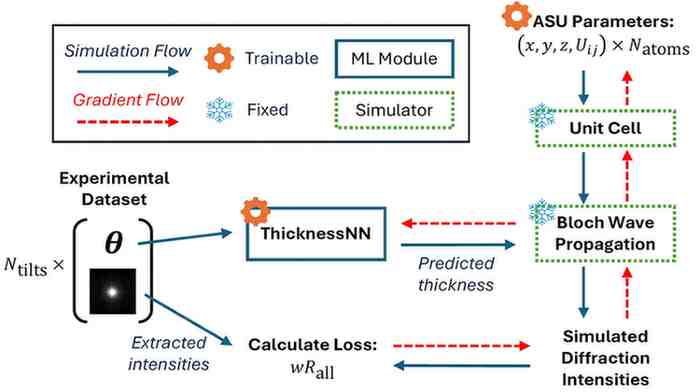Back to all publications...
Hybrid Physics-Machine Learning Models for Quantitative Electron Diffraction Refinements
High-fidelity electron microscopy simulations required for quantitative crystal structure refinements face a fundamental challenge: while physical interactions are well-described theoretically, real-world experimental effects are challenging to model analytically. To address this gap, we present a novel hybrid physics-machine learning framework that integrates differentiable physical simulations with neural networks. By leveraging automatic differentiation throughout the simulation pipeline, our method enables gradient-based joint optimization of physical parameters and neural network components representing experimental variables, offering superior scalability compared to traditional second-order methods. We demonstrate this framework through application to three-dimensional electron diffraction (3D-ED) structure refinement, where our approach learns complex thickness distributions directly from diffraction data rather than relying on simplified geometric models. This method achieves state-of-the-art refinement performance across synthetic and experimental datasets, recovering atomic positions, thermal displacements, and thickness profiles with high fidelity. The modular architecture proposed can naturally be extended to accommodate additional physical phenomena and extended to other electron microscopy techniques. This establishes differentiable hybrid modeling as a powerful new paradigm for quantitative electron microscopy, where experimental complexities have historically limited analysis.
Shreshth Malik, Tiarnan Doherty, Benjamin Colmey, Stephen J. Roberts, Yarin Gal, Paul A. Midgley
arXiv
[paper]

